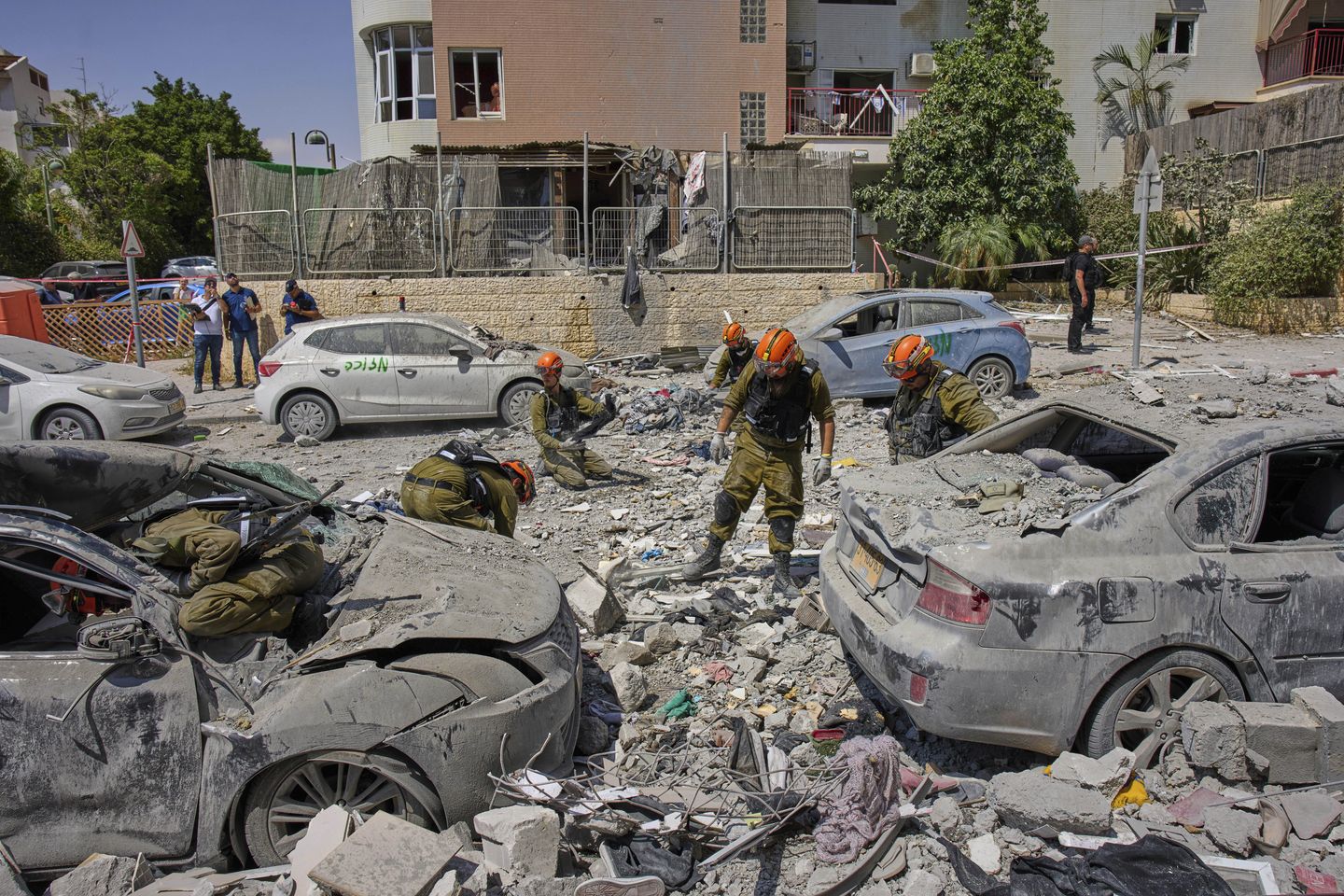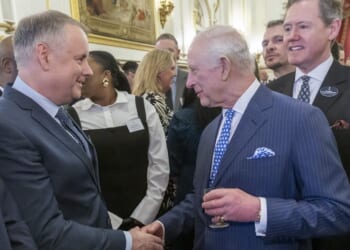
ISTANBUL — Middle East powers are recalibrating their responses as Israel’s war with Iran reshapes the region.
Turkey, Egypt and Jordan are resisting military escalation, shielding fragile economies and distancing themselves from what they see as a one-sided U.S. policy.
Turkish President Recep Tayyip Erdogan blamed Israel directly for the conflict. He warned about “a point of no return” and used the moment to justify a surge in weapons production.
“We are making production plans to bring our medium- and long-range missile stockpiles to a level that ensures deterrence,” he said.
Turkey is fast-tracking the deployment of its long-range and short- and medium-range air defense systems. The move fits into Mr. Erdogan’s broader post-earthquake industrial push, which includes energy projects such as the Sakarya Gas Field and infrastructure deals in Libya and Central Asia. Ankara is also courting Gulf investment to stabilize long-term growth.
Still, the economic picture is grim. Inflation hit 35% in May. The lira dropped 13% in one week. Turkey’s stock exchange plunged nearly 9%, marking its worst week since 2008.
Officials are bracing for a wave of new pressures: refugee flows from Iran, disruption to shipping in the Strait of Hormuz and renewed Kurdish insurgency in the east.
Ankara sees Israel as the aggressor in the conflict. Turkish officials say prospects for diplomacy were real until Israel launched its strike on Iran, part of what they view as a pattern of Israeli operations in the Gaza Strip, Lebanon, Syria and now Iran.
“Turkey is not an ally of Iran,” said Omer Ozkizılcık, a security analyst in Ankara. “We have our own serious differences, especially in Syria and over Kurdish militias.”
Mr. Ozkizılcık said Turkey opposes Israeli military escalation and is working to de-escalate the crisis.
“An unplanned or miscalculated confrontation could spiral into a full-blown regional war. That’s why Turkey is engaging in backchannel diplomacy and sees itself as a mediator, not a combatant,” he said.
He said Mr. Erdogan had persuaded President Trump to consider direct talks with Iran. Ankara’s support for the recent Qatar-brokered ceasefire shows it still holds leverage.
“Turkey is not doing anything to support Iran directly,” Mr. Ozkizılcık said. “But Ankara’s diplomatic messages have still earned credibility in Tehran.”
Despite its criticism of Israel, Turkey could act as a bridge between the adversaries. Ankara’s outreach has been noticed in Washington and Tehran.
In Syria, where Iranian and Israeli forces clashed for years, Sunni Islamist rebels decisively ousted the Assad government and Iran’s Islamic Revolutionary Guard Corps in December. Since then, President Ahmed al-Sharaa’s government has remained silent on the Israel-Iran conflict. It has not condemned Israeli strikes or expressed support for Tehran.
Damascus is focused on rebuilding ties and reopening its economy. It recently completed its first direct SWIFT transaction with an Italian bank since the civil war began. Flights to Kuwait have resumed. Swiss regulators are easing sanctions. Trade envoys from India and Brazil are in talks, and oil-for-food deals with Kurdish authorities in Iraq are back on the table.
“Syria lacks both the capacity and the will to take sides,” Mr. Ozkizılcık said. “Erdogan has also urged Damascus to stay out to avoid being dragged into a mess that could destabilize Syria again.”
In Jordan, the monarchy faces growing pressure over ties to Israel. Student groups, labor unions, tribal leaders and Amman’s professional classes have been calling for a shift in foreign policy since January.
Demonstrators have gathered outside the Israeli Embassy, chanting “Normalization is treason!” Activists are demanding the cancellation of water and gas deals with Israel and have revived viral campaigns such as #NoNormalization and #EndTheDeal.
At the same time, Jordan’s role as a regional transit hub has grown. With Houthi missile strikes targeting Ben Gurion Airport since May and more Israeli airports closing in recent weeks, the King Hussein Bridge has become a mainstay for Israeli, Palestinian and international travelers.
Queen Alia International Airport has also faced mounting disruptions, including rerouted flights and delays because of regional airspace closures, highlighting the tension between Jordan’s shared market of goods and services with Israel and rising domestic anger over its continued ties to a state at war with Hamas.
Many Jordanians say geography could pull their country into a wider war. Others warn that cooperation with Israel and the U.S. increases the risk of direct retaliation.
“Jordan advocates for regional relations based on respect for international law, humanitarian law and the principle of nonintervention in the internal affairs of sovereign states,” said Walid Al Khatib of the Center for Strategic Studies in Amman. “But that vision is being tested daily by Israeli military campaigns, by pressure from Jordan’s own streets and by a public that no longer sees neutrality as enough.”
King Abdullah II has warned that the war could destabilize the region. Hamas, meanwhile, seeks to capitalize on the unrest and is attempting to undermine Jordan’s peace treaty with Israel and the Abraham Accords.
Egypt faces its own set of problems. After Israel suspended gas exports on June 13, rolling blackouts hit Cairo and other major cities. Egypt now relies on costly liquefied natural gas imports and has reportedly spent more than $3 billion filling the gap.
Egypt depends on Israeli gas to stabilize its grid, especially in summer. Without it, outages get worse.
The disruption also threatens Egypt’s LNG exports to Europe, one of its few stable sources of foreign currency. With the Egyptian pound under pressure and inflation surging, the stock market lost $3 billion last week.
Mohammed Ibrahim, a former diplomat with the Egyptian Center for Strategic Studies, said Israeli strikes have failed to deter Iran.
“Iran can still fire in waves, and they’ve shown it,” he said. “Military action won’t solve this. It just makes everything worse.”
He accused Israel of using the Iran crisis as cover to press its military campaign in Gaza.
“They’re moving without checks or consequences while the world looks away,” he said. “Egypt and Saudi Arabia both believe this widens the crisis. It invites escalation no one here can control, and we’re the ones paying the price.”
Mr. Ibrahim dismissed U.S. efforts to integrate Israel into a regional security framework.
“You can’t talk about integrating Israel while Palestine is still burning,” he said. “That’s not a peace strategy; it’s a blueprint for permanent instability.”


![Former Bravo Star Charged After Violent Assault Using a Rock-Filled Sock in Tennessee Walmart [WATCH]](https://www.right2024.com/wp-content/uploads/2025/07/Former-Bravo-Star-Charged-After-Violent-Assault-Using-a-Rock-Filled-350x250.jpg)



![Man Arrested After Screaming at Senators During Big Beautiful Bill Debate [WATCH]](https://www.right2024.com/wp-content/uploads/2025/06/Man-Arrested-After-Screaming-at-Senators-During-Big-Beautiful-Bill-350x250.jpg)










